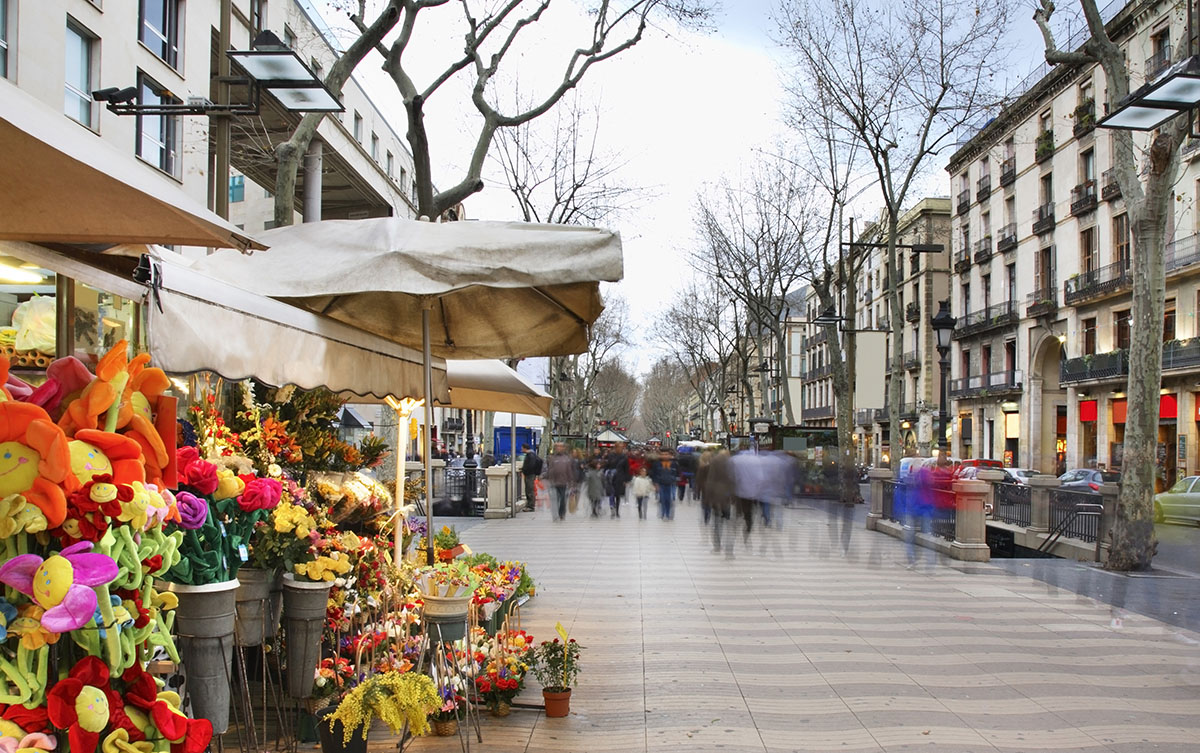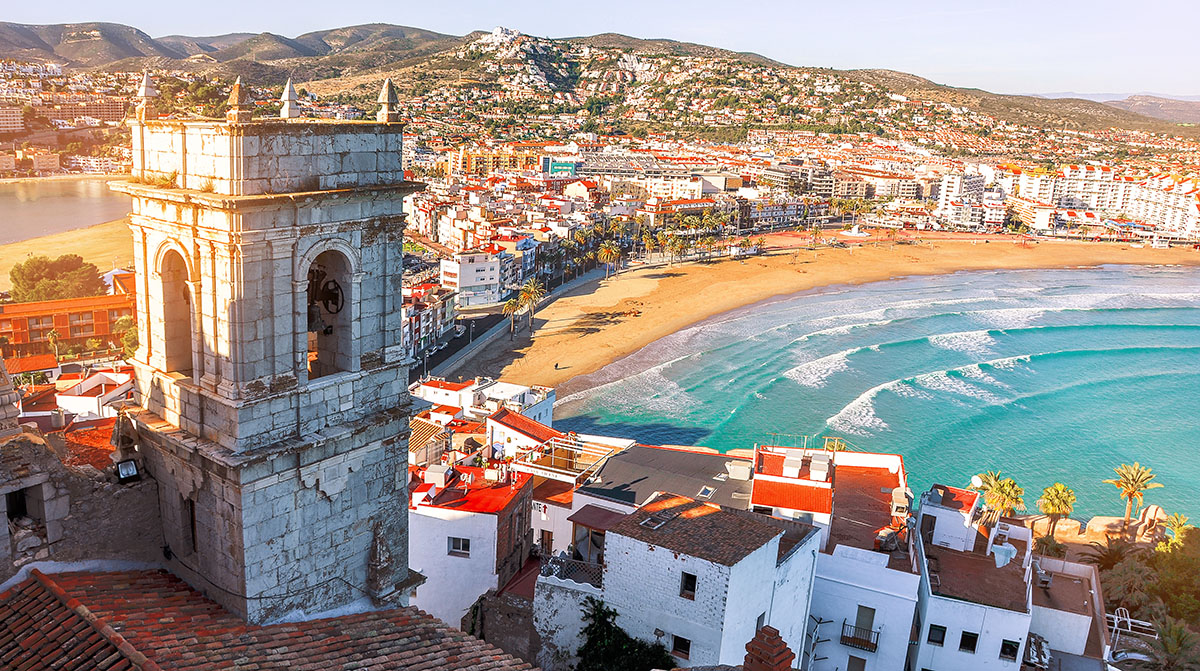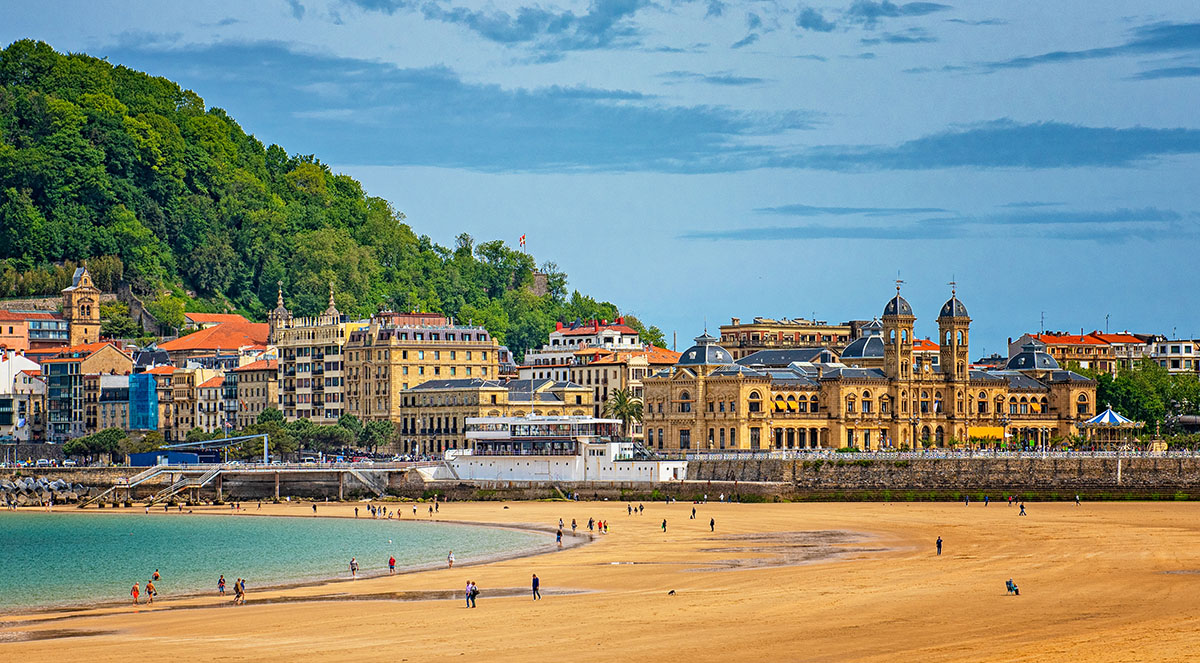Spain has rapidly emerged as one of Europe’s most appealing destinations for digital nomads, offering an enticing blend of Mediterranean lifestyle, rich cultural heritage, developed infrastructure, and newly implemented visa pathways designed specifically for remote workers. From sun-drenched coastal cities to historic urban centers, Spain provides diverse environments for location-independent professionals seeking European charm without the high costs of other Western European countries.
Spain’s Digital Nomad Visa Program
In January 2023, Spain officially launched its Digital Nomad Visa as part of the Startup Act, creating a clear pathway for remote workers to legally reside in the country.
Key Details of Spain’s Digital Nomad Visa:
- Duration: Initial period of 1 year, renewable for up to 5 years (with possible permanent residency afterward)
- Income Requirement: Minimum of approximately $2,500 monthly income (roughly €2,100)
- Work Restrictions: Must work remotely for non-Spanish companies or have less than 20% of income from Spanish entities
- Tax Benefits: Special tax regime with reduced rate of 15% (instead of normal 24%) for up to 4 years
- Processing Time: Typically 1-3 months
- Application Fee: Approximately $80 (varies by location)
- Dependents: Spouse/partner and children can be included
- Healthcare Requirement: Private health insurance that functions in Spain
- Educational Benefits: Access to Spain’s education system for dependents
- Official Website: Spain Digital Nomad Visa
Alternative Visa Options
Before the Digital Nomad Visa, many remote workers used these alternatives (which are still available):
- Non-Lucrative Visa: Requires proof of passive income (not active work) and higher financial requirements
- Self-Employed Visa (Autónomo): For freelancers, requires business plan and higher administrative hurdles
- Golden Visa: Investment-based residence (typically real estate investment of €500,000+)

Why Choose Spain as a Digital Nomad
Spain offers numerous compelling advantages that have made it increasingly popular among digital professionals:
- Quality of Life: Consistently ranks among the highest in the world
- Climate: 300+ days of sunshine annually in many regions
- Cost of Living: More affordable than Northern/Western European countries
- Healthcare System: World-class public and private options
- Transportation: Excellent domestic and international connections
- Internet Infrastructure: Widespread fiber optic coverage in urban areas
- Cultural Richness: World-renowned art, architecture, cuisine, and history
- Outdoor Lifestyle: Mediterranean beaches, mountain ranges, and natural parks
- Safety: Low crime rates and generally safe environment
- English Prevalence: Increasingly common in major cities and tourist areas
- Social Atmosphere: Vibrant street life and community-centered culture
- EU Membership: Access to Schengen Area travel

Top Cities for Digital Nomads in Spain
Barcelona: The Creative Hub
Catalonia’s cosmopolitan capital combines beach lifestyle with urban energy:
- Digital Scene: Spain’s primary startup and tech ecosystem
- Coworking Density: Highest concentration of spaces in the country
- International Community: Large, diverse expatriate population
- Connectivity: Excellent digital infrastructure and international airport
- Living Costs: Higher than most Spanish cities (~$2,000-2,500/month)
- Urban Beaches: Unique combination of city life with Mediterranean coastline
- Cultural Attractions: Gaudí architecture, world-class museums, vibrant neighborhoods
- Language Environment: Mix of Spanish (Castilian), Catalan, and English
- Drawbacks: Overtourism in peak seasons, higher crime rates than other Spanish cities
Popular digital nomad neighborhoods include El Born (central, historic charm), Gràcia (village-like atmosphere), Poblenou (tech district, beach access), and Eixample (elegant, central location).
Madrid: The Metropolitan Capital
Spain’s capital offers a quintessential Spanish urban experience:
- Business Environment: Economic center with corporate headquarters
- Cultural Immersion: Traditional Spanish lifestyle and customs
- Infrastructure: World-class transportation and amenities
- Coworking Ecosystem: Growing number of innovative spaces
- Living Costs: Moderate for a European capital (~$1,800-2,300/month)
- Gastronomy: Culinary capital with markets and diverse dining
- Art Scene: The “Golden Triangle” of world-class museums
- Connectivity: Central location with Spain’s largest international airport
- Green Spaces: Surprisingly abundant parks and urban gardens
- Drawbacks: Extreme summer temperatures, limited English outside tourist areas
Key neighborhoods for digital nomads include Malasaña (hip, central), Chueca (LGBTQ+-friendly), La Latina (historic, social scene), and Salamanca (upscale, refined).
Valencia: The Balanced Choice
Spain’s third-largest city offers an ideal middle ground:
- Quality-Price Ratio: Excellent value for cost (~$1,500-2,000/month)
- Climate: Mild year-round temperatures
- Beach Access: Urban beaches with clean Mediterranean waters
- Innovation: City of Arts and Sciences, growing tech scene
- Size Advantage: All amenities of a major city but navigable scale
- Bicycle-Friendly: Flat terrain with extensive bike paths
- Green Infrastructure: The unique Turia Garden park
- Digital Nomad Growth: Rapidly increasing international remote worker population
- Authentic Experience: Less touristy than Barcelona or southern coastal areas
- Drawbacks: Fewer international connections, less English proficiency
Popular areas include Ruzafa (bohemian, gastro-hub), El Carmen (historic center), Cabanyal (beach area, developing), and Benimaclet (university area, affordable).
Málaga: The Rising Star
This Andalusian coastal city has transformed into a digital nomad hotspot:
- Climate: Among the best year-round weather in Europe
- International Focus: Rapidly developing digital nomad infrastructure
- Cost Efficiency: Good value (~$1,400-1,900/month)
- Tech Growth: “Málaga Valley” tech initiatives
- Airport Connections: Excellent international flights
- Beach Lifestyle: Mediterranean coast with urban beaches
- Cultural Offerings: Historical center, museums, Andalusian heritage
- Day Trip Options: Accessible mountains and white villages
- English Prevalence: Higher than most Andalusian cities
- Drawbacks: Becoming increasingly expensive, summer tourist crowds
Key neighborhoods include Centro Histórico (historic core), Soho (arts district), El Palo (beachside, authentic), and Pedregalejo (coastal, upmarket).
Canary Islands (Las Palmas, Tenerife): The Year-Round Paradise
These Atlantic islands offer a unique digital nomad experience:
- Climate: Best year-round climate in Europe (20-25°C/68-77°F average)
- Established Scene: One of Europe’s first digital nomad hubs
- Cost Advantage: Affordable living (~$1,300-1,800/month)
- Nature Access: Dramatic landscapes, volcanic terrain, beaches
- Outdoor Lifestyle: Surfing, hiking, water sports
- Tax Benefits: Special economic zone with reduced taxation
- Connectivity: Improving digital infrastructure, international airports
- Nomad Infrastructure: Numerous coliving/coworking spaces
- Drawbacks: Island isolation, sometimes slower pace, limited cultural offerings compared to mainland
Las Palmas de Gran Canaria (particularly Las Canteras beach area) and southern Tenerife (Los Cristianos, Costa Adeje) are the primary nomad hubs.
San Sebastián: The Northern Gem
This Basque Country coastal city offers a sophisticated alternative:
- Gastronomic Excellence: Highest concentration of Michelin stars per capita
- Beach Setting: Beautiful La Concha Bay
- Cultural Richness: Basque heritage, international film festival
- Scenic Beauty: Mountain-meets-sea landscape
- Quality of Life: Consistently high rankings
- Higher Cost: More expensive than southern Spain (~$2,000-2,500/month)
- Weather Contrast: Greener, mild summers but rainy winters
- Digital Scene: Smaller but growing nomad community
- Drawbacks: Fewer dedicated digital nomad facilities, higher costs, weather variability
The Centro area and Gros neighborhood (near Zurriola Beach) are popular with international residents.
Practical Considerations
Internet and Connectivity
Spain offers generally excellent digital infrastructure:
- Urban fiber optic internet speeds typically range from 300Mbps to 1Gbps
- Mobile coverage is extensive with 5G expanding rapidly
- Major providers include Movistar, Vodafone, Orange, and MásMóvil
- Budget-friendly mobile plans are widely available
- Connection quality may vary in rural areas and smaller islands
Accommodation Options
- Short-term: Airbnb, booking.com, and specialized platforms like Spotahome
- Medium to long-term: Idealista, Fotocasa, Facebook groups for specific cities
- Coliving: Growing options in Barcelona, Madrid, Valencia, and the Canary Islands
- Budget range: From $600/month in smaller cities to $1,200+ in prime Barcelona/Madrid locations
- Seasonal fluctuations: Coastal prices can double during summer months
- Documentation: Foreigners often need additional guarantees or advance payments
Seasonal Considerations
Spain’s climate varies significantly by region:
- Mediterranean Coast: Hot summers (sometimes uncomfortably so), mild winters
- Central Spain: Temperature extremes (very hot summers, cold winters)
- Northern Spain: Milder summers, rainy winters, lush green landscapes
- Canary Islands: Consistent mild temperatures year-round
- Tourist Seasonality: Coastal areas become crowded and expensive in July-August
Many digital nomads rotate through Spain seasonally: winters in the Canary Islands or southern coast, spring/fall in major cities, and summers in the north.
Transportation
- Extensive high-speed train network (AVE) connecting major cities
- Excellent regional bus systems
- Budget airlines connecting Spanish cities and European destinations
- Ride-sharing services available in major cities (Uber, Cabify)
- Bicycle infrastructure improving in many cities
- Public transportation generally affordable and reliable
Banking and Finance
- Euro (€) is the currency
- Major cities have abundant ATMs and banking options
- Challenger banks like N26 and Revolut work well for nomads
- Cash is still important in smaller establishments
- Some banks offer non-resident accounts, though documentation requirements can be strict
- Cost of living varies widely: Barcelona and Madrid at the higher end, smaller inland cities most affordable
Coworking and Cafe Culture
- Extensive coworking ecosystem, particularly in Barcelona, Madrid, and Valencia
- Day passes typically range from $15-25
- Monthly memberships from $150-300 depending on location and amenities
- Strong café culture, though not all cafés welcome laptop workers
- Work-friendly cafés typically found in more international neighborhoods
- Extended lunch breaks (2-4pm) can affect workspace availability
Language Considerations
- Spanish (Castilian) is the official national language
- Catalonia, Valencia, Galicia, and Basque Country have co-official regional languages
- English proficiency varies significantly:
- Higher in Barcelona, Madrid, Málaga, tourist areas, and among younger Spaniards
- Limited in smaller towns and among older generations
- Basic Spanish significantly improves daily life experience
- Language exchange meetups common in major cities
Legal and Administrative Matters
Digital Nomad Visa Application Process
- Gather required documentation (proof of income, health insurance, clean criminal record)
- Submit application at Spanish consulate in home country or online platform
- Provide biometrics if required
- Receive approval (typically 1-3 months)
- Obtain TIE (Foreigner Identity Card) after arrival in Spain
Tax Considerations
- Digital Nomad Visa holders benefit from special 15% tax rate (vs. standard 24%+)
- Tax residency typically applies after 183+ days in Spain within a calendar year
- Spain has double taxation agreements with many countries
- Autonomo (self-employed) status carries monthly social security payments regardless of income
- Professional tax assistance highly recommended
Healthcare
- Spain’s public healthcare ranks among the world’s best
- Digital Nomad Visa requires private insurance initially
- After formal residency, access to public system possible
- Private insurance costs approximately $50-150/month depending on age and coverage
- Medical tourism industry well-developed in certain regions
Challenges to Consider
While Spain offers many advantages, potential challenges include:
- Bureaucracy: Administrative processes can be slow and paper-heavy
- Language Barrier: Limited English in many official settings
- Banking Friction: Opening accounts can be challenging for new arrivals
- Summer Heat: Extreme temperatures in much of the country during July-August
- Siesta Schedule: Business hours may require adjustment (afternoon closures)
- Seasonality: Coastal areas transform drastically between peak and off-seasons
- Noise Levels: Spanish social life tends to be louder and run later than in many countries
- Work-Life Integration: The relaxed pace can be challenging for those used to stricter schedules
Conclusion
Spain represents an excellent option for digital nomads seeking European quality of life, cultural richness, and favorable climate without the high costs associated with other Western European destinations. The introduction of the Digital Nomad Visa demonstrates Spain’s commitment to attracting remote workers and creating a sustainable pathway for long-term stays.
Whether you’re drawn to Barcelona’s creative energy, Madrid’s metropolitan sophistication, Valencia’s balanced lifestyle, Málaga’s coastal vibe, or the perpetual spring of the Canary Islands, Spain offers diverse environments to suit different digital nomad preferences and budgets. The country’s combination of modern infrastructure, rich heritage, outdoor lifestyle, and increasingly international outlook creates an appealing setting for productive remote work balanced with quality of life.
For those willing to navigate some bureaucratic challenges and embrace the Spanish pace of life, the rewards are substantial: a country where innovation meets tradition, where work can seamlessly blend with enjoyment, and where the concept of “living well” remains central to the national identity. Spain’s growing digital nomad communities in multiple cities also ensure that newcomers can find both support networks and authentic local experiences.
As Spain continues to develop its digital nomad ecosystem and infrastructure, its appeal is likely to grow even further, cementing its position as one of Europe’s premier destinations for location-independent professionals seeking the ideal work-life integration.
Ready to make your digital nomad dreams a reality? Download our comprehensive Digital Nomad Visa Guide for detailed requirements and official resources for each destination.
Connect with fellow location-independent professionals by joining our exclusive Sojrn Digital Nomad Community for ongoing support, insider tips, and updates to enhance your borderless lifestyle.



